Special Report
Sleep Disorder Warning Signs You Should Know About

Published:

A good night’s sleep is important for health. Giving the body and mind a chance to rest and reset is vital yet about 1 in 3 adults don’t get enough sleep, according to data from the Centers for Disease Control and Prevention.
Many people who struggle with getting enough rest can lay the blame on factors like alcohol, caffeine, stress, or simply staying up too late watching TV. But there are also a number of health issues that could point to a serious sleep disorder.
To determine sleep disorder warning signs to look for, 24/7 Tempo reviewed medical sources like the Cleveland Clinic and Icahn School of Medicine at Mount Sinai about symptoms of common sleep disorders.
These sleep disorder symptoms range from the obvious, like feeling sleepy during the day, to surprising effects on certain parts of the body. Many of these issues can be abated through lifestyle changes, but others could point to medical issues that require treatment.
Though most times occasional sleeplessness is just part of life, sometimes it’s a way for your body to tell you to check your health. These habits you think are normal may be masking a serious health problem.
Click here to see sleep disorder warning signs to look for
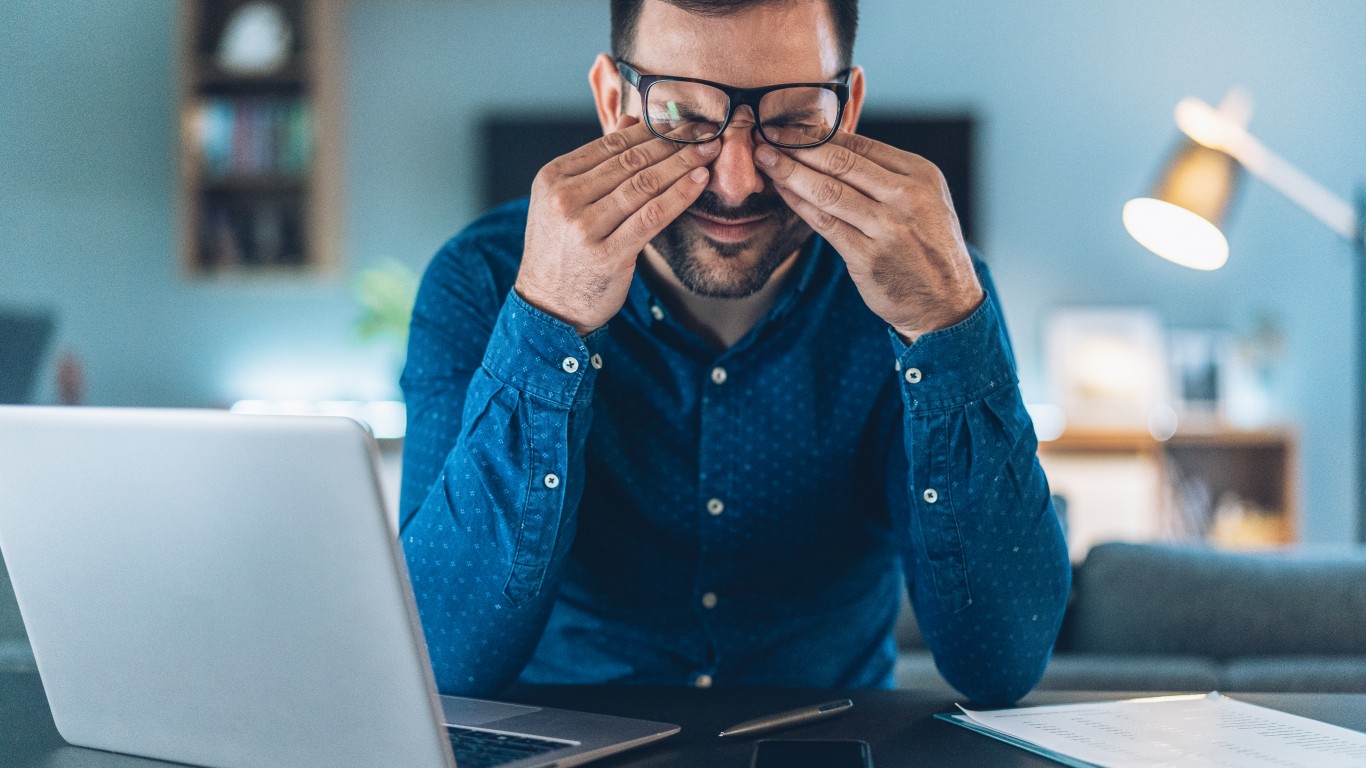
1. Being very tired during the day
> Possible sleeping disorder(s): Central sleep apnea, insomnia
Being sleepy may seem like an unavoidable reality of life, but feeling sleepy over a prolonged period of time could actually be a sign of an underlying medical issue. Sleep is vital for health, and regularly feeling sleepy could be a sign that something is interrupting restfulness. A number of health issues such as sleep apnea, insomnia, or restless legs syndrome could be the culprit.
[in-text-ad]
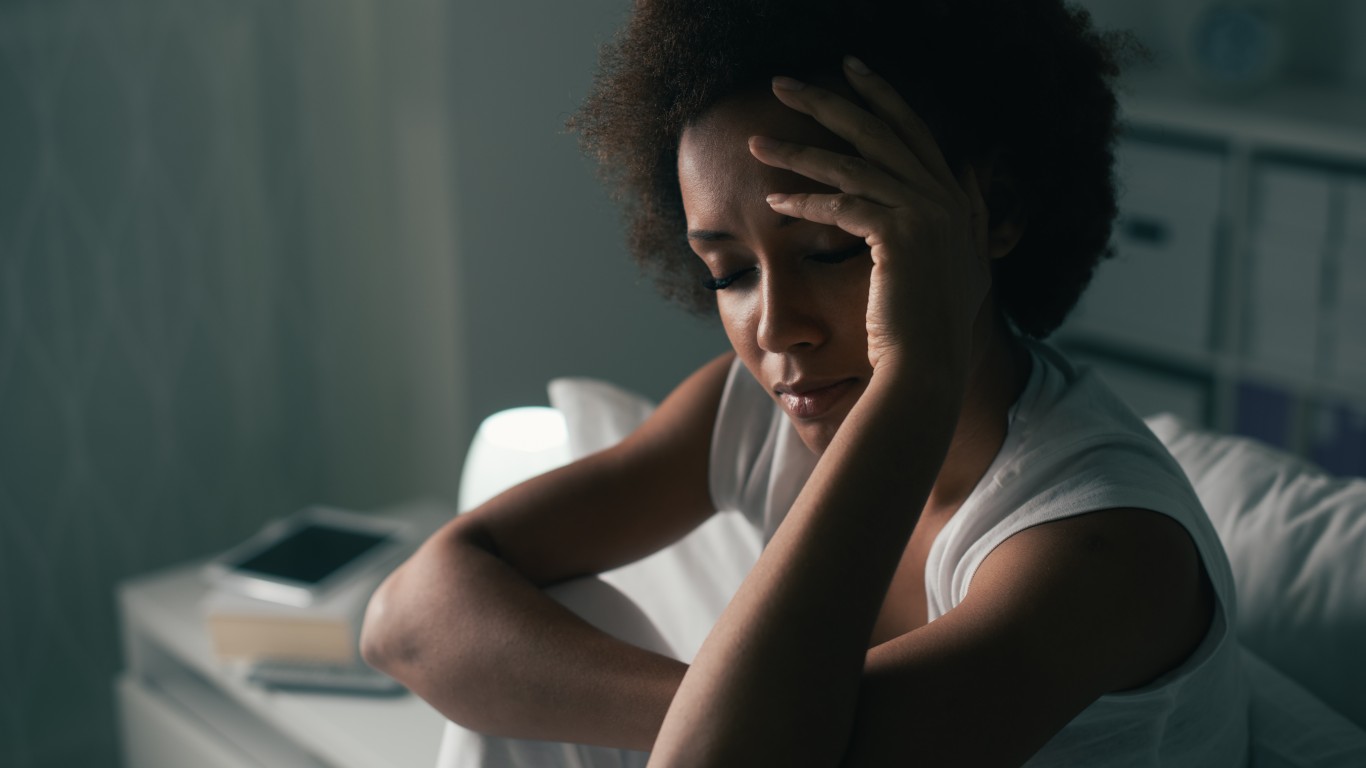
2. Difficulty falling asleep
> Possible sleeping disorder(s): Circadian rhythm disorder, insomnia
Insomnia is a sleeping disorder in which people have difficulty falling asleep or staying asleep. They don’t get restorative sleep at night, which results in them feeling exhausted during the day. It’s possible for people with chronic insomnia to have a few good nights of sleep followed by many nights with lack of sleep.
Difficulty falling asleep may also be a sign of circadian rhythm sleep disorders. These disorders involve disruptions to the body’s “internal body clock,” which controls the body’s sleep-wake cycle or rhythm..
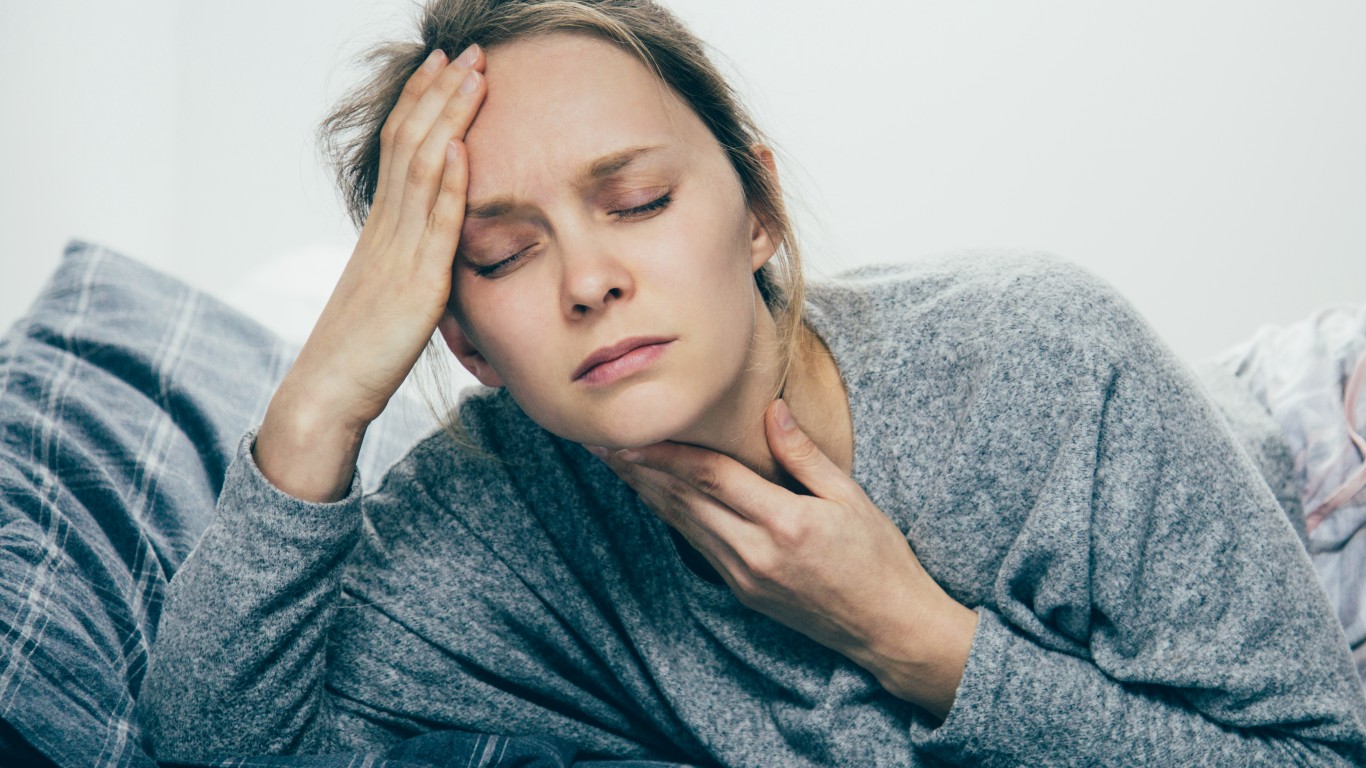
3. Dry mouth or sore throat upon waking up
> Possible sleeping disorder(s): Obstructive sleep apnea
Snoring and breathing through the mouth can be signs of obstructive sleep apnea and can cause people to wake up with a very dry mouth or even a sore throat in the morning. Dry mouth and sore throat are common symptoms of OSA. According to one study, nearly a third of people who suffer from obstructive sleep apnea experience morning dry mouth.

4. Excessive daytime sleepiness
> Possible sleeping disorder(s): Obstructive sleep apnea, insomnia, restless legs syndrome
Excessive daytime sleepiness is a common sign of several sleeping disorders, including obstructive sleep apnea, insomnia, and restless leg symptoms, and it affects up to a fifth of Americans, according to the Sleep Foundation.
Excessive daytime sleepiness is the urge to sleep during daytime hours, especially when sedentary, like while sitting and working or driving, and it is easily confused with fatigue. The difference is that people with fatigue may not actually fall asleep despite feeling tired. Daytime sleepiness is considered excessive and possibly a symptom of a sleeping disorder when it happens almost every day for at least three months.
[in-text-ad-2]

5. Falling asleep while driving
> Possible sleeping disorder(s): Narcolepsy
Suddenly falling asleep while doing any activity is a sign of narcolepsy, a chronic sleep disorder that causes overwhelming and uncontrollable daytime drowsiness. Falling asleep while driving, in particular, is especially common among those with narcolepsy. Some studies suggest that more than half of the people with the condition have fallen asleep while driving, and one-third have been in an accident due to being too sleepy.
The causes of narcolepsy are not very clear. One theory is that narcolepsy attacks are brought on due to the lack of a brain chemical that regulates sleep.
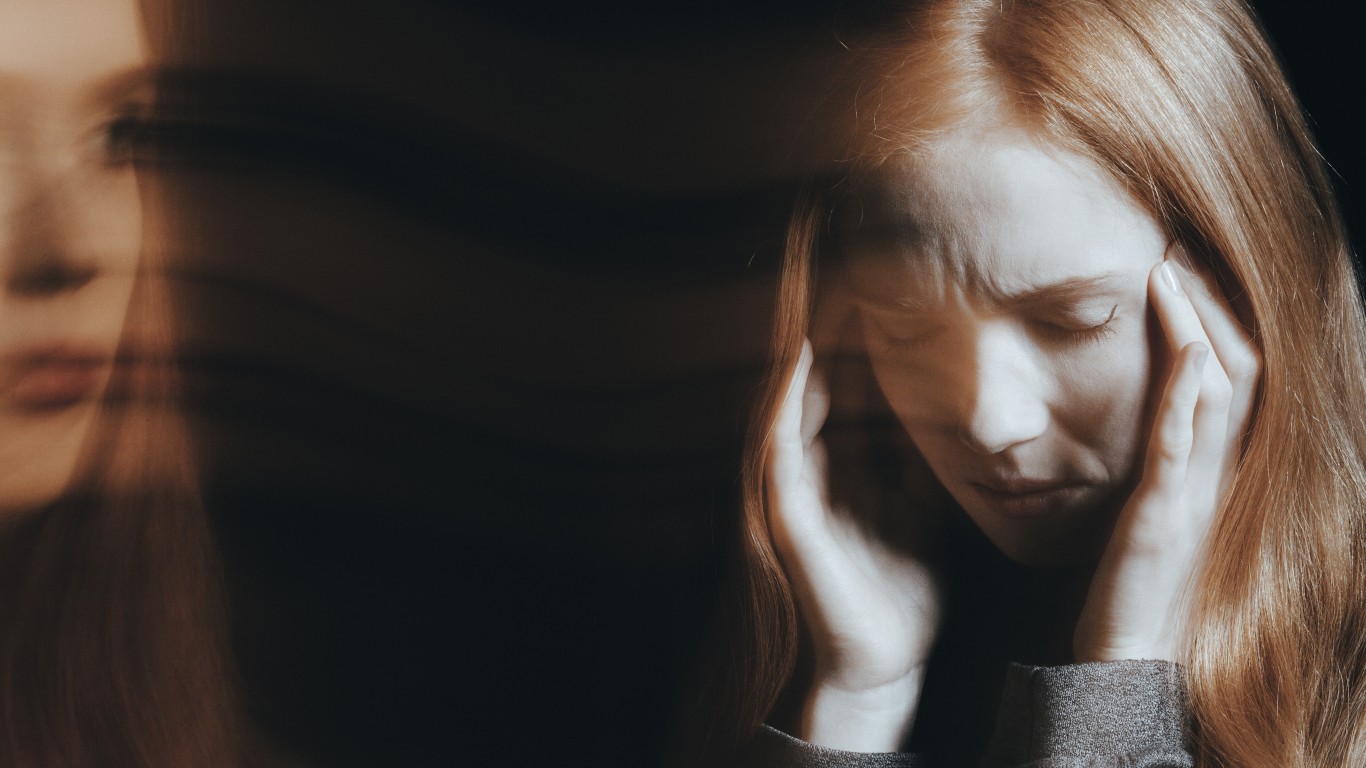
6. Hallucinations
> Possible sleeping disorder(s): Narcolepsy, parasomnia
Parasomnia is a category of sleep disorders that are characterized by abnormal movements and behaviors during, before, or after sleep. Parasomnia-related hallucinations are often visual and occur shortly after waking up. But they can also be sensory, involving sound, taste, or smell.
Sleep-related hallucinations can also occur immediately before people fall asleep. They are called hypnagogic hallucinations and can be a sign of narcolepsy. Hallucinations can sometimes occur at the same time as sleep paralysis, which can last for up to two minutes.
[in-text-ad]
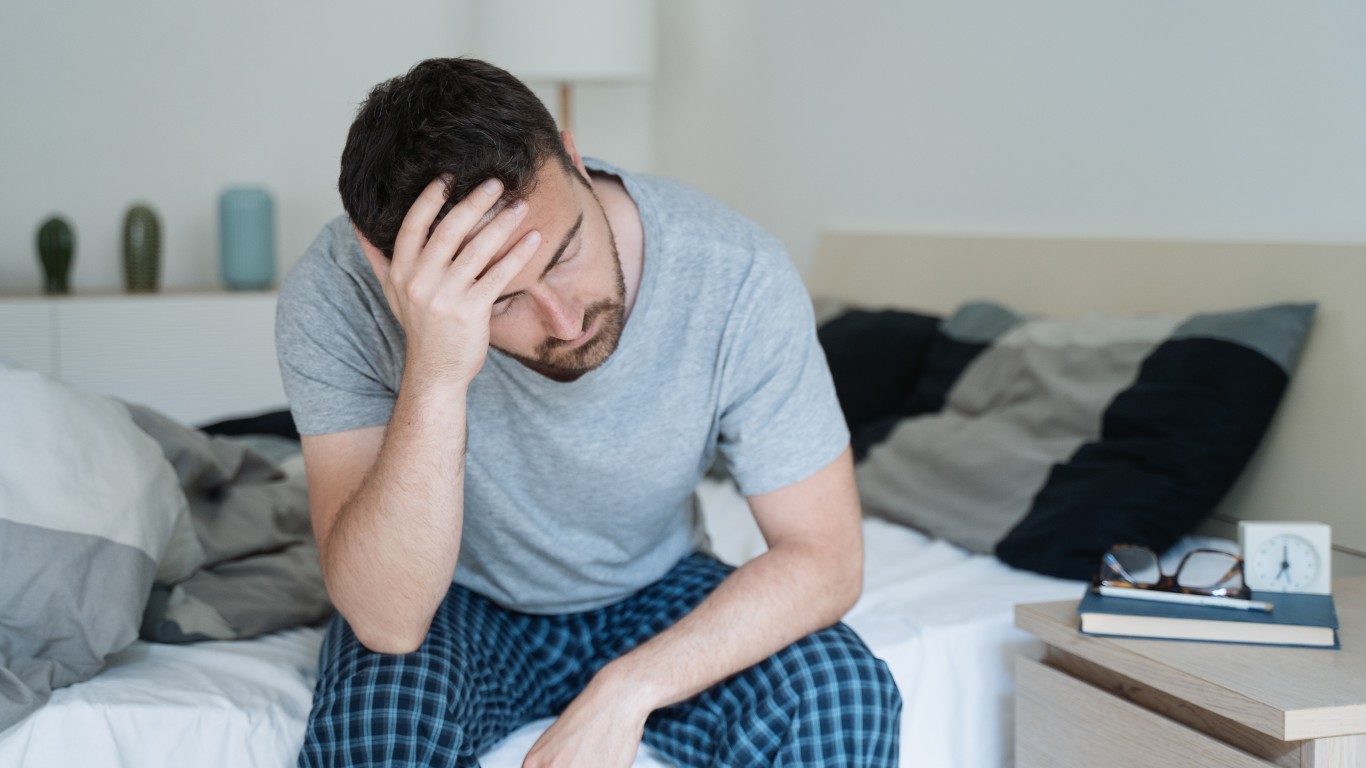
7. Headaches in the morning
> Possible sleeping disorder(s): Obstructive sleep apnea, central sleep apnea, circadian rhythm disorder
Chronic morning headaches are a common symptom of obstructive sleep apnea. One study suggests that nearly a third of people with OSA wake up with a headache. What causes them exactly is not clear. One reason may be loud snoring, which is also a common symptom associated with sleep apnea.
Morning and cluster headaches may also be due to a circadian rhythm disorder, which is defined as problems that people experience when trying to fall asleep, waking up too early, being unable to fall asleep.
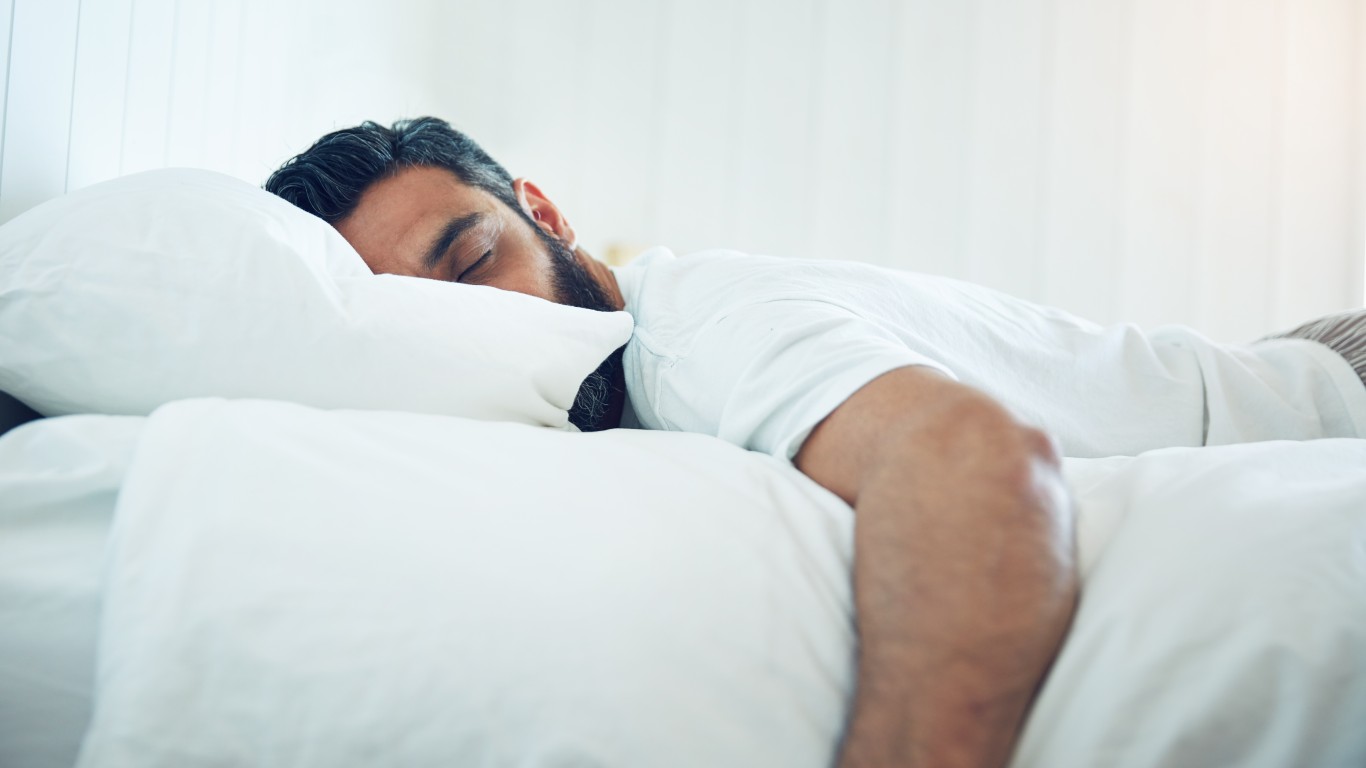
8. Increased movement during sleep
> Possible sleeping disorder(s): Obstructive sleep apnea, narcolepsy
Moving or shifting at night can be a normal part of sleeping. But if the frequency of movement is especially high, or increasing relative to the past, that could indicate a sleep disorder. The Sleep Foundation says these involuntary movements could be due to periodic limb movement disorder or restless legs syndrome, which may affect up to 10% of the U.S. population.

9. Irregular breathing during sleep
> Possible sleeping disorder(s): Sleep apnea
Irregular breathing during sleep could be a sign of health issues, particularly sleep apnea. Sleep apnea causes people to stop breathing during sleep. Sleeping at higher elevations or taking opioid medications can cause sleep apnea as can certain underlying health conditions like heart problems or neurological disorders..
[in-text-ad-2]

10. Irregular sleep and wake cycle
> Possible sleeping disorder(s): Sleep-wake syndrome, insomnia
Getting enough sleep is important, but so is sleeping at the appropriate time. Sleeping at irregular times or struggling to fall and stay asleep at night could be signs of several different sleep disorders, including insomnia and sleep-wake syndrome. Insomnia makes it difficult to sleep, while people with sleep-wake syndrome feel the urge to sleep and wake at abnormal times.

11. Lower cognitive skills
> Possible sleeping disorder(s): Circadian rhythm disorder
A good night’s sleep is crucial for mental stimulation and cognitive functions. Impaired performance at work or lower cognitive skills for a prolonged time could be a sign of a sleep problem like circadian rhythm disorder, which affects the brain’s ability to communicate to the rest of the body that it is time to rest.
[in-text-ad]
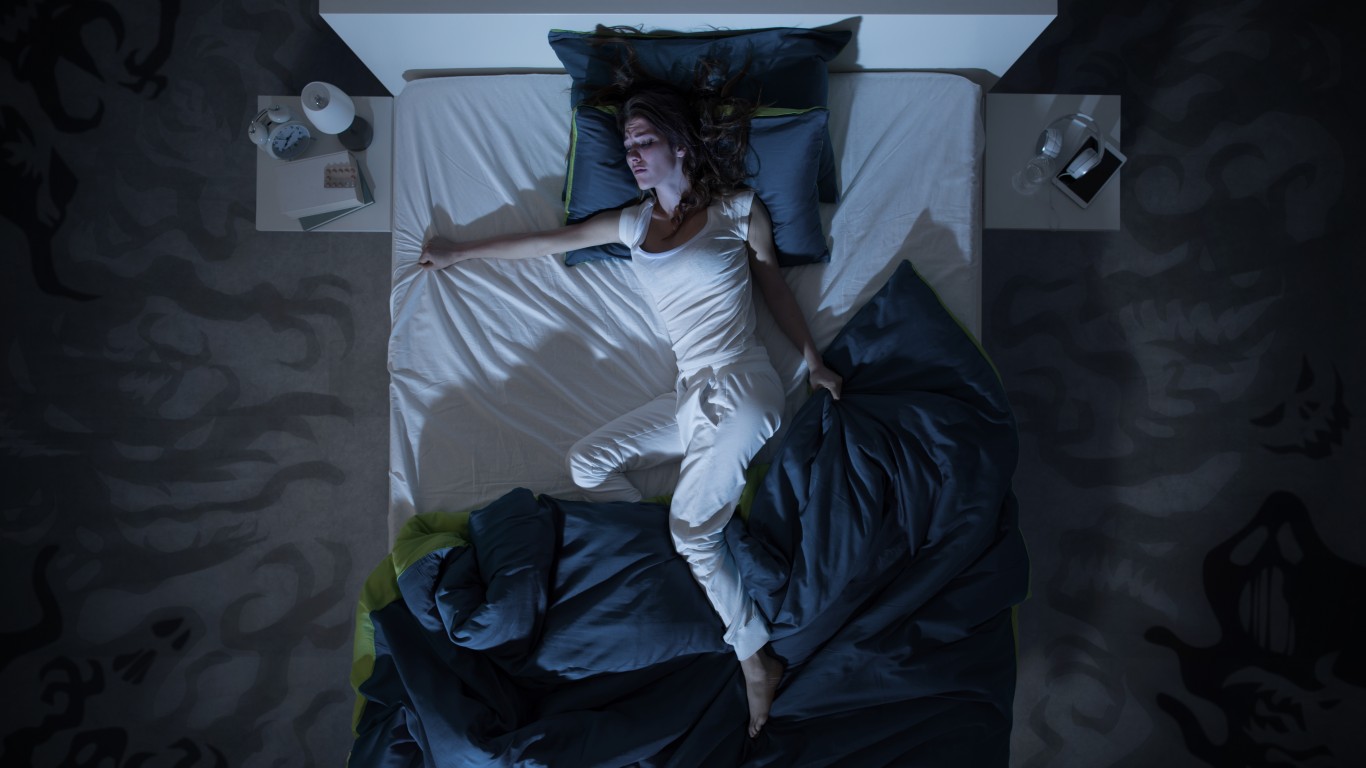
12. Night sweats
> Possible sleeping disorder(s): Obstructive sleep apnea
While most of us occasionally sweat at night if the room is too hot or we wear too many clothes, night sweats refer to repeated episodes of severe hot flashes that occur during sleep and cause excessive sweating that can drench sleepwear and sheets. Night sweats may be caused by several underlying conditions, including obstructive sleep apnea. The muscles in the chest and throat relax during sleep, causing obstructions that block airways, and causing night sweats in some people.

13. Not being able to exercise as much as usual
> Possible sleeping disorder(s): Central sleep apnea
Those who find they are unable to exercise for as long as they used to or with the same intensity may have central sleep apnea. This type of sleep apnea causes people to briefly stop breathing during the night because the brain does not tell the lungs to inhale.
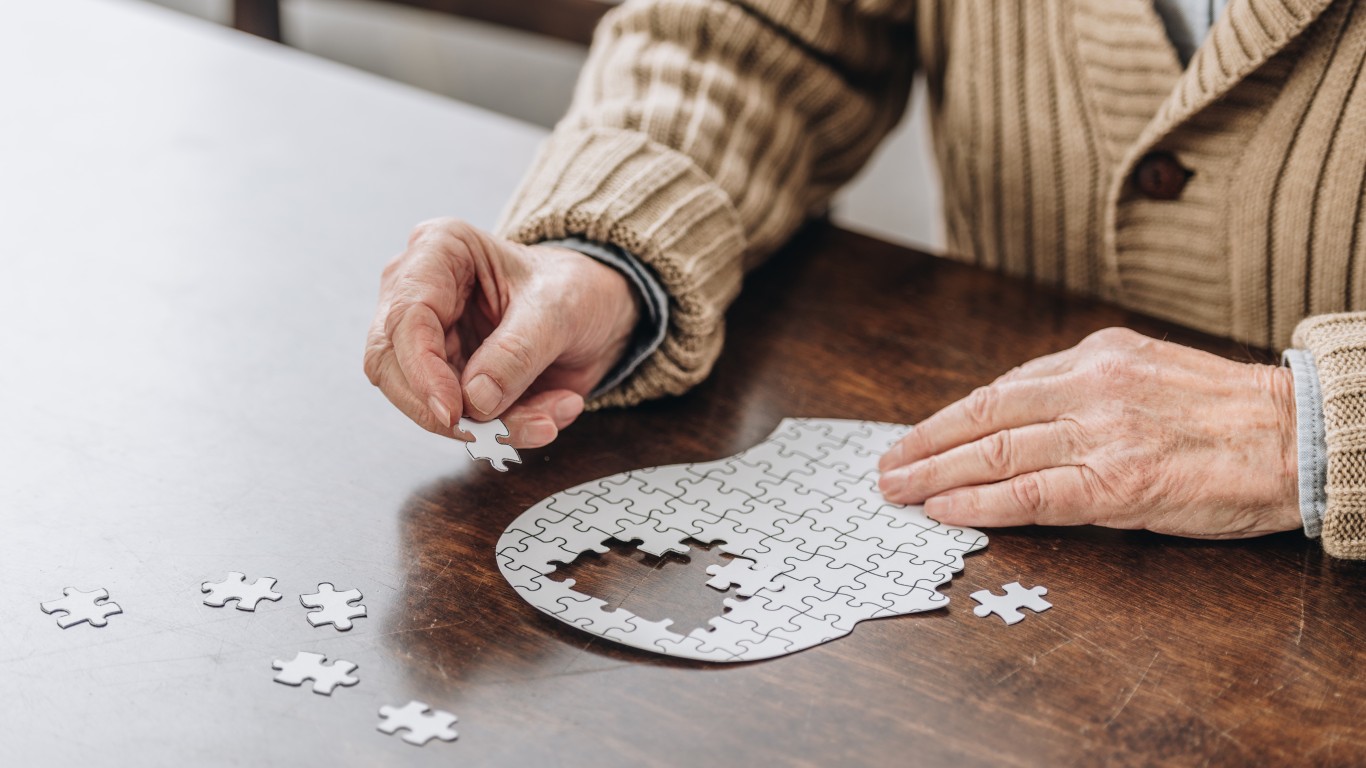
14. Problems with memory or concentrating
> Possible sleeping disorder(s): Insomnia, central sleep apnea, obstructive sleep apnea, circadian rhythm disorder, restless legs syndrome
A Spanish study found that during sleep, certain neural connections in the brain are strengthened. These connections help clean and keep memories.
[in-text-ad-2]
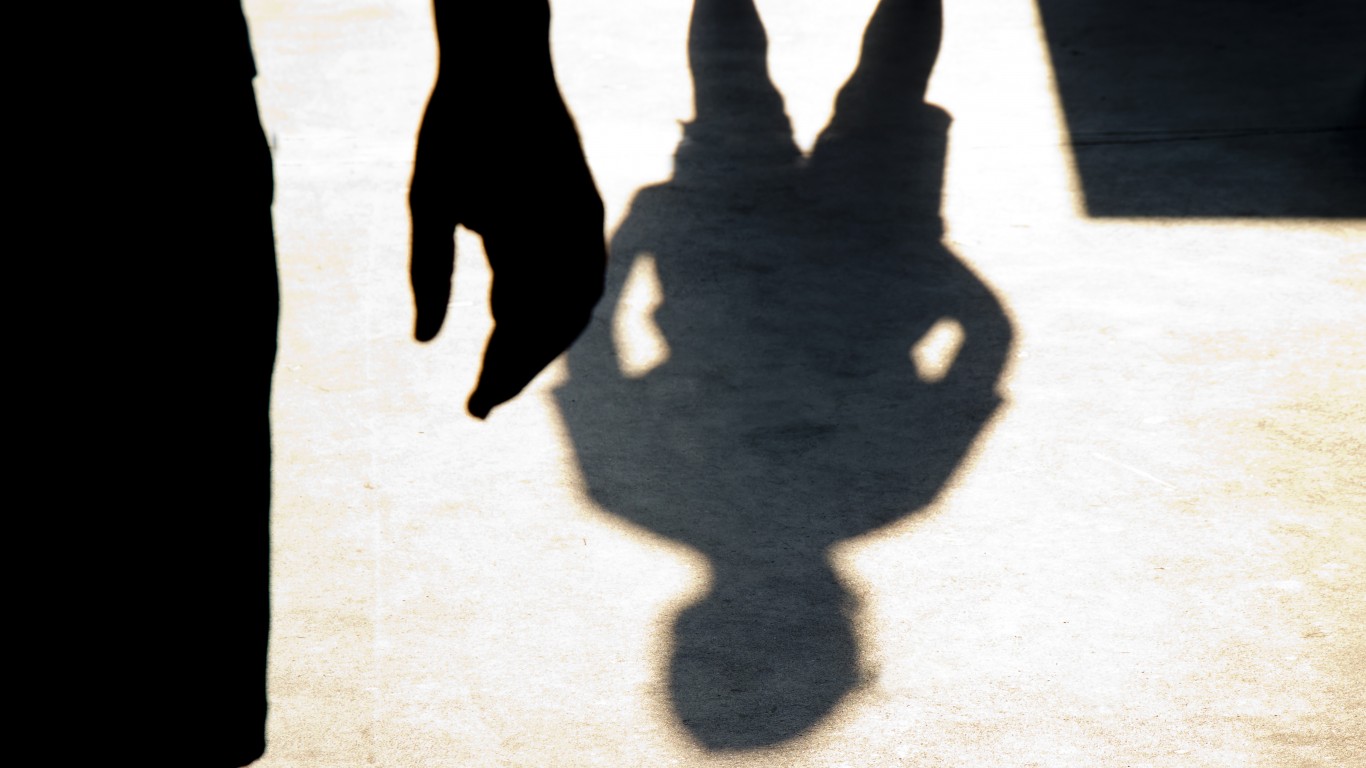
15. Sleep paralysis
> Possible sleeping disorder(s): Narcolepsy
Sleep paralysis is a disconcerting phenomenon in which someone is unable to move or speak for at most a few minutes after waking up or just before falling asleep. This occurs when the body does not move through sleep stages properly. Though it is usually not a sign of any major issues, sleep paralysis is sometimes associated with narcolepsy, a disorder in which the brain struggles to regulate sleep.

16. Snoring
> Possible sleeping disorder(s): Obstructive sleep apnea
Snoring is not just a noisy disruption for people sleeping nearby, snorers may suffer from a serious condition known as obstructive sleep apnea. OSA can cause people to snore during sleep because something blocks their upper airway. This disorder can be brought on by being overweight or drinking alcohol.
[in-text-ad]
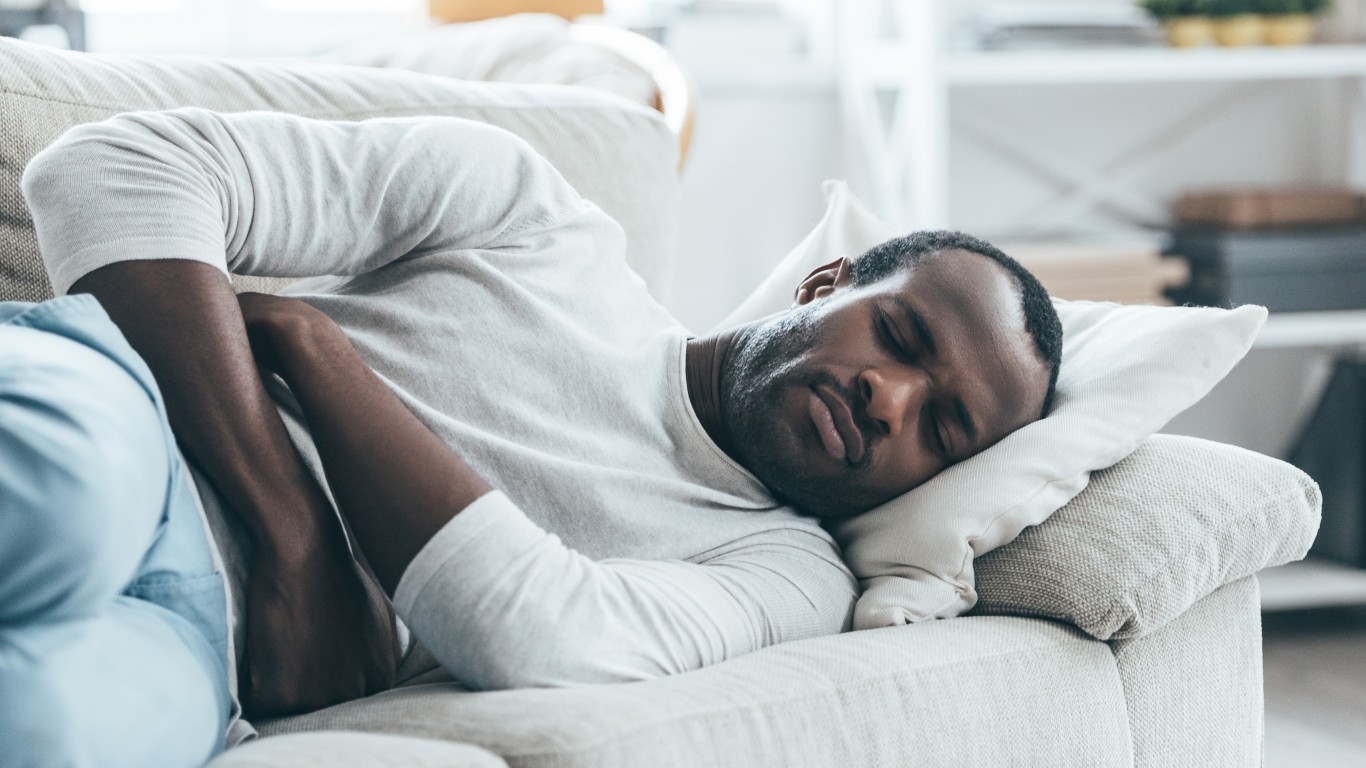
17. Stomach problems
> Possible sleeping disorder(s): Circadian rhythm disorder
Sleep disruption affects not just the mind but the body as well. The body’s circadian rhythm refers to the body’s internal clock, which helps regulate several biological processes within the body. When the circadian rhythm is disrupted, it may disrupt the rhythms and patterns in the gut, leading to microbes being thrown off and causing stomach problems.

18. Struggling to stay awake when inactive
> Possible sleeping disorder(s): Insomnia
Those who struggle to stay awake when they are simply sitting down, watching TV, or reading may suffer from insomnia — difficulty of falling or staying asleep at night. In turn, this can cause excessive fatigue and nodding off during the day.

19. Waking up gasping or choking
> Possible sleeping disorder(s): Obstructive sleep apnea
Waking up gasping or choking could be a sign of obstructive sleep apnea, which occurs when something blocks your airway, or when your muscles do not do a good job of regulating airflow during sleep. The gasping or choking could mean that the airway’s muscles relax and narrow enough to cause obstruction to breathing.
[in-text-ad-2]
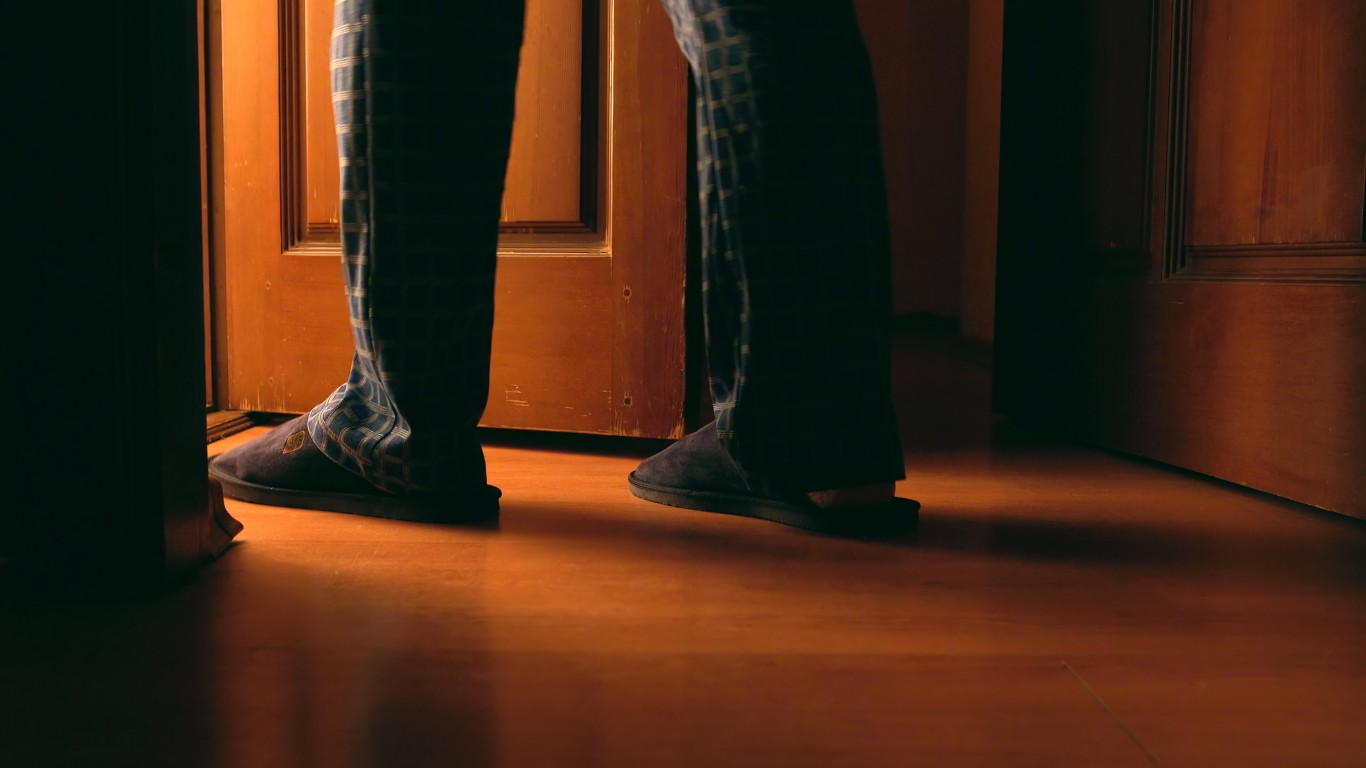
20. Waking up often to pee
> Possible sleeping disorder(s): Obstructive sleep apnea, central sleep apnea
Waking up often to pee may have more to do with your lungs than your bladder. Nocturia — peeing at night — is a common symptom of obstructive or central sleep apnea. Treating sleep apnea might help alleviate frequent nighttime urination.
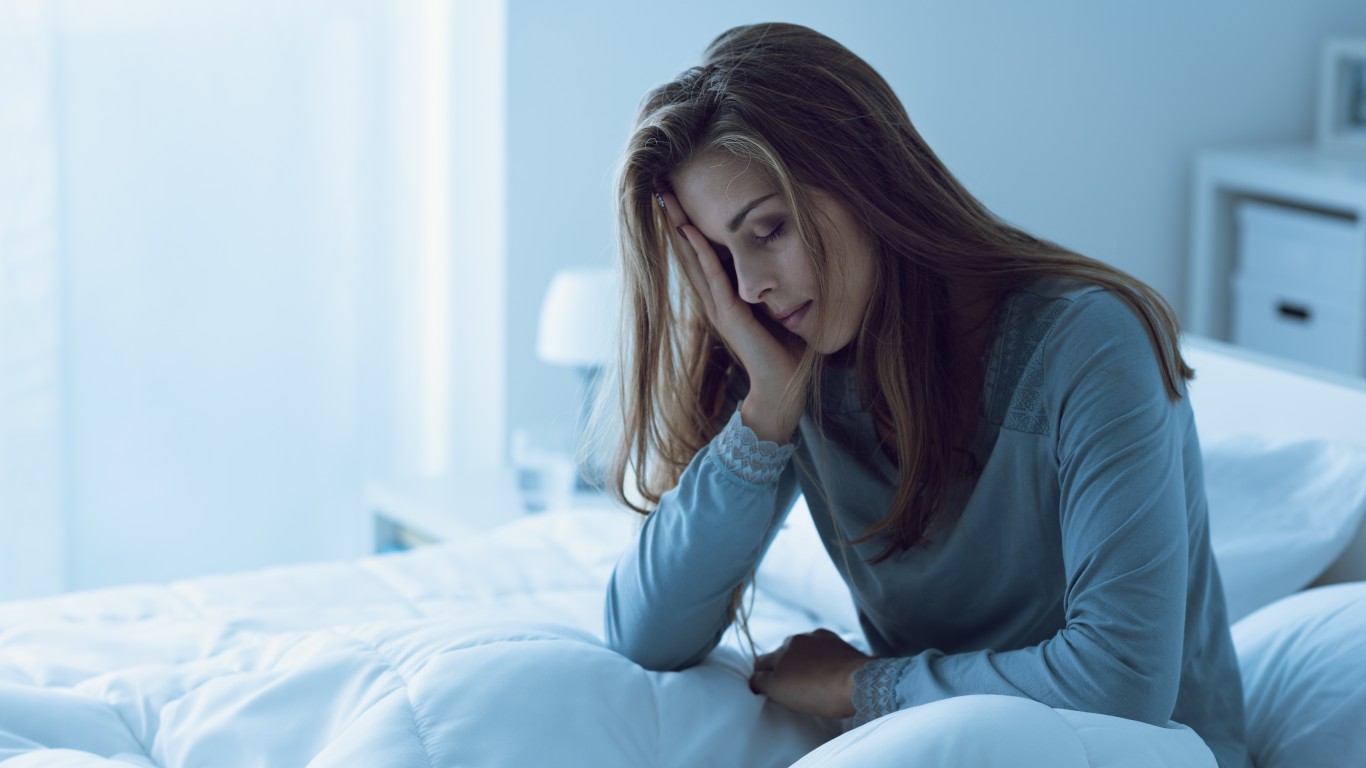
21. Waking up too early and not falling back asleep
> Possible sleeping disorder(s): Circadian rhythm disorder
Few things are as frustrating as waking up too early when you still have time to sleep. This is not just annoying but could be a signal from your body that your circadian rhythm is off — your body thinks it is time to get up too early.
Are you ready for retirement? Planning for retirement can be overwhelming, that’s why it could be a good idea to speak to a fiduciary financial advisor about your goals today.
Start by taking this retirement quiz right here from SmartAsset that will match you with up to 3 financial advisors that serve your area and beyond in 5 minutes. Smart Asset is now matching over 50,000 people a month.
Click here now to get started.
Thank you for reading! Have some feedback for us?
Contact the 24/7 Wall St. editorial team.